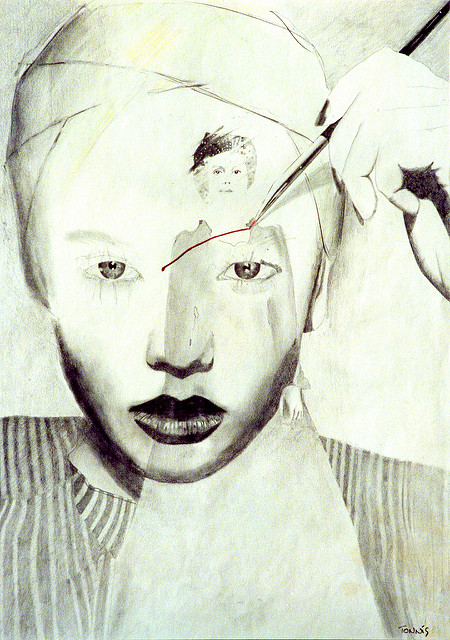I have a family history of abuse and mental illness and by my 20s, I was a mess.
I was abusing alcohol to try and cope with all of my issues, and I was on a fast track to jail or death.
After seeking help from doctors and psychiatrists, trying many medications, and after years of struggle and growth, I eventually found stability. I have a dual diagnosis of mental illness, one of which is borderline personality disorder or BPD.
On my journey, I constantly faced misunderstanding, judgment and lack of sympathy concerning my mental illness. It was at times offending, isolating and discouraging. It made it difficult to find support. It made me feel like something was wrong with me and I wasn’t accepted.
Even as a person who grew up around people with mental illness, I didn’t truly understand their struggles until I began suffering myself. I realize now that many people have no experience with these illnesses or people who have them.
I want to bust some of the myths concerning my illness, and hopefully encourage others to be more aware, more compassionate and more considerate of mental illness in general and of those who have them.
Myth 1: People with BPD have the tendency to be violent individuals and harm others.
Someone with BPD will actually go to great lengths to avoid hurting others, even at the cost of hurting themselves. They tend to give up their happiness and sacrifice their needs and wants for others, especially in relationships where they often fear abandonment. Their anger is typically directed inward.
People with borderline personality disorder have often been rejected from a young age or made to feel inadequate, like something is severely wrong with them. They crave acceptance and rejection is unbearable. Their emotions can be confusing and they don’t trust themselves, causing them to rely on feedback from others. They look outside of themselves for acceptance and approval. If things go wrong, they blame it on themselves; if they are disliked, it is their own fault.
Myth 2: People with BPD are manipulative.
Behaviors of those diagnosed with BPD are difficult to understand. They are intense—and seeing someone engaging in those behaviors can be shocking and scary. This has led to the belief that borderline sufferers are “manipulative” and “seeking attention.” But you can’t necessarily infer a person’s intentions from his or her behavior. Over-reaction and under-reaction originate from our needs not having been met and being told that we should not have them. Or, we were provoked to overreact when we did not want to. Not getting our needs met to survive altered how we had to respond to survive.
In many cases, those suffering from constant invalidation and neglectful conditions act out to gain care. This leads to a habit and behavior of over-reactive responses and an inability to understand their needs and emotions.
Myth 3: BPD is a life sentence.
When BPD was “new” and was beginning to get diagnosed, it was considered a life sentence because there were no known treatments or even studies conducted on the disease at that time. Now, there is DBT (dialectical behavior therapy) and many other cognitive therapies that sufferers can access. Treatment requires a willingness to change behaviors and time and patience to learn it, but it is effective. Unfortunately, the rumor that treatment is ineffective keeps spreading as a truth.
Myth 4: BPD is caused by bad parenting.
Not everyone who has been diagnosed with BPD had a bad childhood or bad parents. Though being neglected or abused as a child plays a big role in developing borderline personality disorder, not everyone who develops it has had these experiences. It could be caused by the environment they grew up in, teachers and other influential adults, embedded beliefs or traumatic events. Whatever the case, BPD sufferers, like everyone else, can be proactive about emotional healing and overcoming these things.
My illness is not all of who I am, and I work every day to cope with it in a way that makes me healthy, happy and able to meaningfully contribute to others.
There are many people suffering from my illness and other similar illnesses. Sufferer or not, we all deserve understanding and compassion on this life journey. I hope you will make an effort to see others that way.
Author: Vanessa I.
Editor: Catherine Monkman; Ashleigh Hitchcock
Image: Christiaan Tonnis/Flickr

 Share on bsky
Share on bsky







Read 2 comments and reply